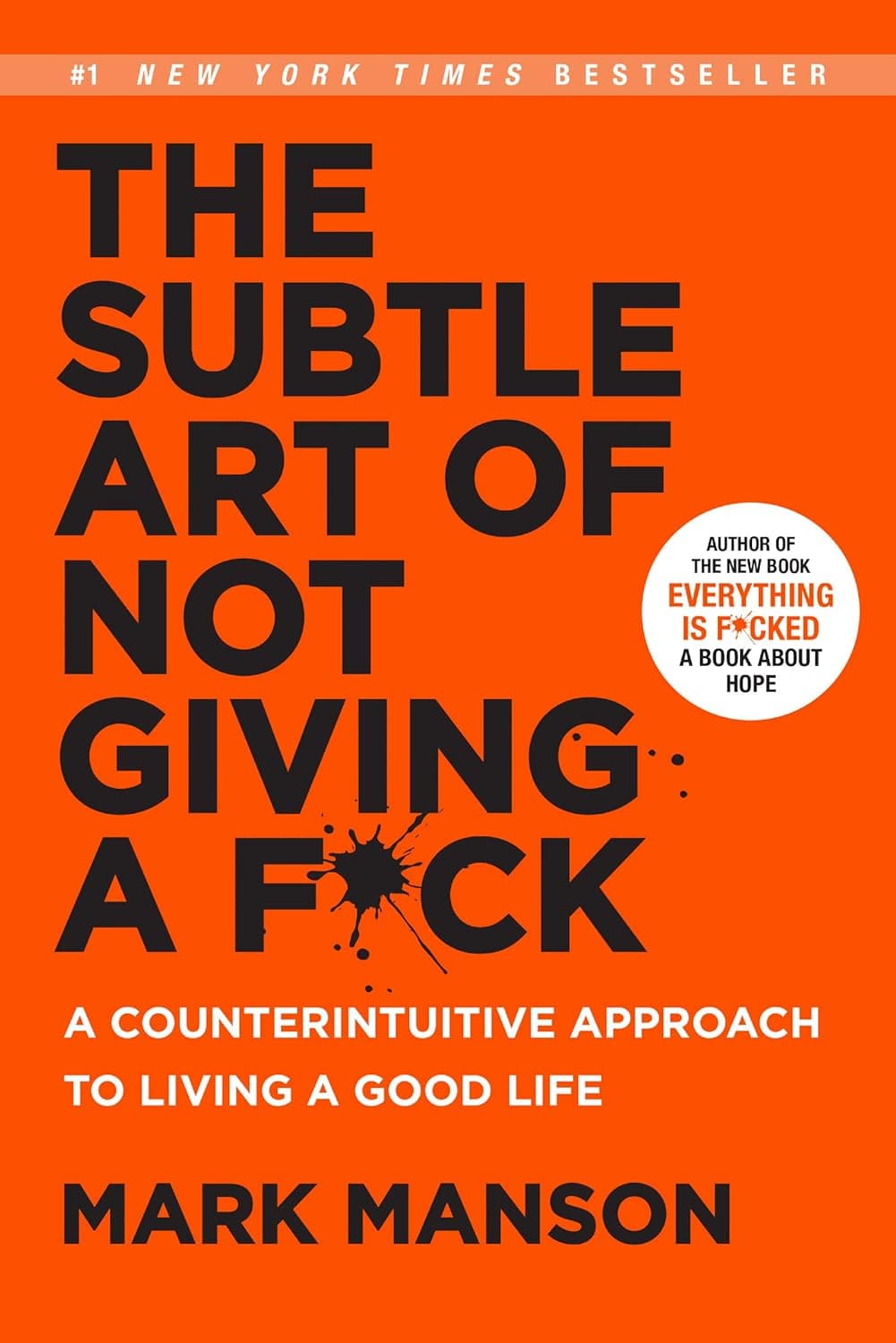
The Subtle Art of Not Giving a Fuck
By: Mark Manson
Category: Philosophy
Finished:
Highlights
Manson provides a series of lessons on life and his philosophies. I liked some, disliked others, but these were the ideas that I thought were interesting.
Don’t Try
Manson points out that many successful people weren’t “trying” to be successful, just continuing to do the work. There’s definitely an element of confirmation bias/narrative fallacy here though.
The Feedback Loop from Hell
An example: “You get anxious about confronting somebody in your life. That anxiety cripples you and you start wondering why you’re so anxious. Now you’re becoming anxious about being anxious. Oh no! Doubly anxious! Now you’re anxious about your anxiety, which is causing more anxiety. Quick, where’s the whiskey?”
Essentially, it’s when worrying about problems makes them worse. And then worrying about worrying makes things worse. Manson points out, though, that all good things have an associated bad thing with them. Desires and judgments are the problems:
“The desire for more positive experience is itself a negative experience. And, paradoxically, the acceptance of one’s negative experience is itself a positive experience.”
Giving a Fuck
You’re always choosing to give a fuck about something, consciously or not, so you ought to be more deliberate in what you choose to give a fuck about. Other people’s opinions are not good things to give fucks about.
Happiness is the Problem
Manson points out that a focus on trying to be happy paradoxically leads to unhappiness. In the Buddhist tradition, life is suffering. He’s essentially saying the same thing here, there will always be suffering, and happiness is not something we can “solve.”
He points out though that happiness comes from solving problems. Sustained happiness then can come from problems you enjoy having and enjoy trying to solve.
This also comes back when he says we need to “choose our struggle.” There will always be struggles, but it’s up to us to pick the struggles that are worth putting up with: “People who enjoy the stresses and uncertainties of the starving artist lifestyle are ultimately the ones who live it and make it.”
Good Values for Your Life:
- Based in reality
- Socially constructive
- Immediate and controllable
Bad values:
- Superstitious
- Socially destructive
- Not immediate or controllable
“Some examples of good, healthy values: honesty, innovation, vulnerability, standing up for oneself, standing up for others, self-respect, curiosity, charity, humility, creativity. Some examples of bad, unhealthy values: dominance through manipulation or violence, indiscriminate fucking, feeling good all the time, always being the center of attention, not being alone, being liked by everybody, being rich for the sake of being rich, sacrificing small animals to the pagan gods.”
Manson’s Law of Avoidance:
“The more something threatens your identity, the more you will avoid it.”
Reducing Freedom
“Ultimately, the only way to achieve meaning and a sense of importance in one’s life is through a rejection of alternatives, a narrowing of freedom, a choice of commitment to one place, one belief, or (gulp) one person.”

